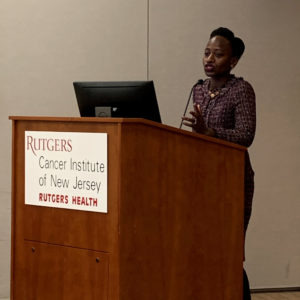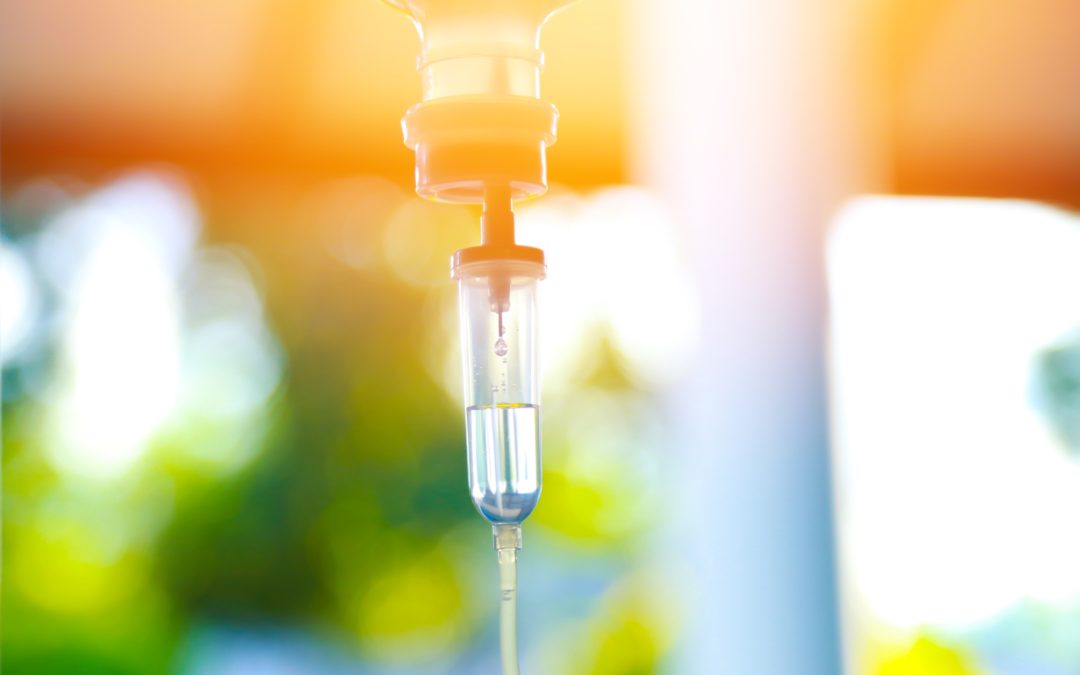
Yehoda Martei, assistant professor of medicine in the Division of Hematology/ Oncology at University of Pennsylvania
Earlier this month, Rutgers Global Health Institute presented a lecture by Yehoda Martei, an assistant professor of medicine in the Division of Hematology/Oncology at University of Pennsylvania. Part of the institute’s Health Equity in Africa series, Martei’s lecture was entitled, “Optimizing Breast Cancer Therapy Delivery in LMICs: The Botswana Experience.” During a one-hour talk and question-and-answer session held at Rutgers Cancer Institute of New Jersey, Martei discussed her collaborative research findings on evaluating and improving cancer care and outcomes in sub-Saharan Africa.
Here are four key insights from the event:
Disproportionate burden of cancer mortality: Botswana lacks a national breast cancer screening program, and health system delays contribute to later diagnoses. About 80 percent of breast cancer cases present at an advanced stage, compared with 17 percent in the United States, Martei says. This is among the reasons why breast cancer mortality is disproportionately high in Botswana. “The mortality-to-incidence ratio, or the proportion of patients diagnosed with breast cancer who have died from their disease, in 2018 was 0.38 in Botswana versus 0.14 in North America,” Martei says.
Gaps in cancer therapy delivery: It has been proven that patients with lymph node positive breast cancer who complete 85 percent or more of an optimal chemotherapy dose for curative intent have an increased chance of survival compared to those who receive less. But there are no standardized national treatment guidelines for breast cancer in Botswana, and patients are dropping off the treatment cascade at different stages. “It is not enough to say, ‘Well, we gave some chemo,’” Martei says. “We need to evaluate the quality of chemotherapy delivery. There is really good data showing that chemotherapy fidelity is correlated with survival.” Martei is examining the provider barriers and facilitators associated with treatment fidelity.
Inconsistent access to essential cancer medicines: Botswana has access to 80.5 percent of the essential medicines recommended by the World Health Organization to treat cancer and yet, in 2015, 40 percent of those medicines were out of stock for more than 30 days on average. For 80 percent of breast cancer patients studied, at least one drug in the prescribed regimens was affected by a stockout. “This represents a huge burden,” Martei says, “as each week of stockout doubled the risk of a suboptimal therapy event.”
Need for country-specific strategies: By developing and adhering to guidelines relevant to Botswana, treatment drop-offs can be reduced. Consideration must be given to patient needs and resources, including time and ability to travel to a medical facility, social and cultural beliefs, and psychological support for patients. Expansion of the trained workforce is crucial, as is improved communication between clinicians in different departments. Patients also need more information on their treatment plans. Martei says that in a recent qualitative study on breast cancer therapy delivery in Botswana, one health care provider reported, “We receive stage 4 cancer patients who think treatment is curative, but by the time they come to palliative care and discuss prognosis or treatment, they are very shocked because that is not what they were expecting.”
Martei’s full presentation is available below.

